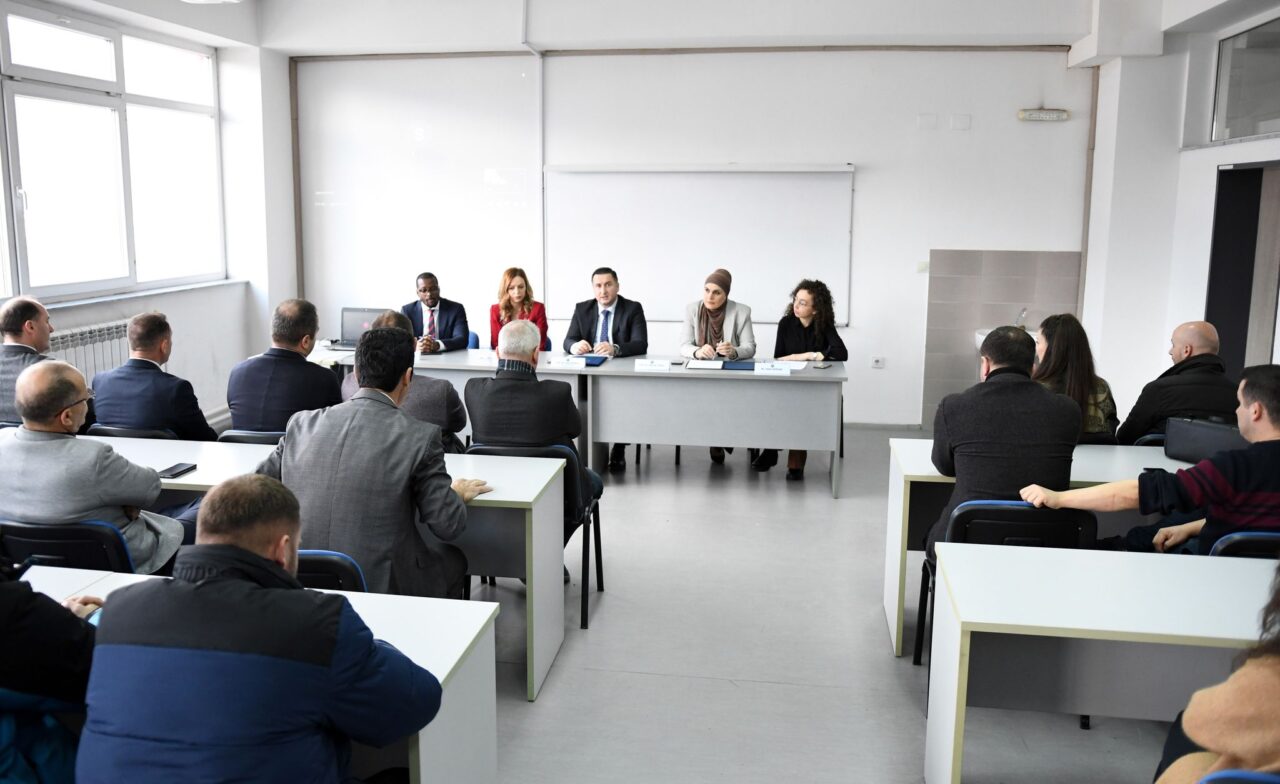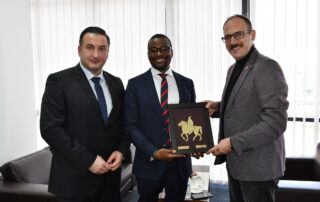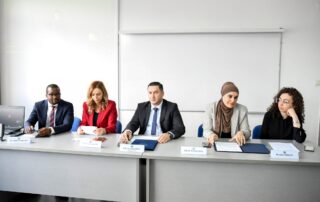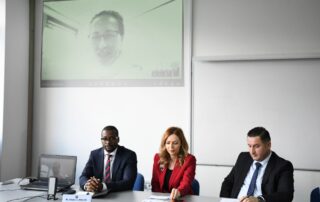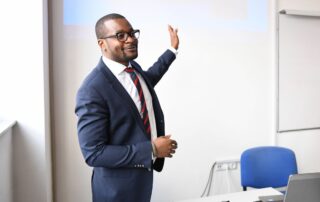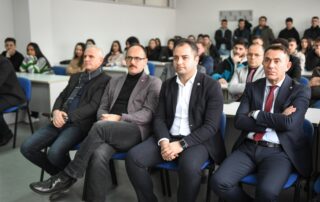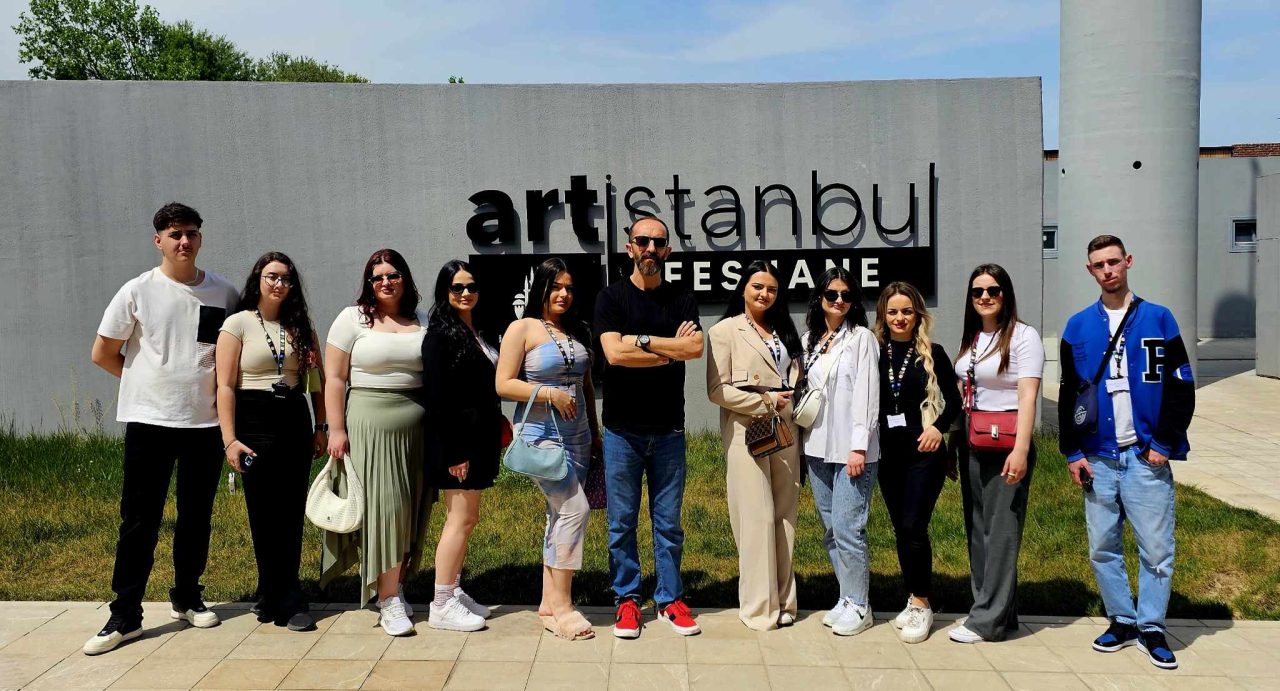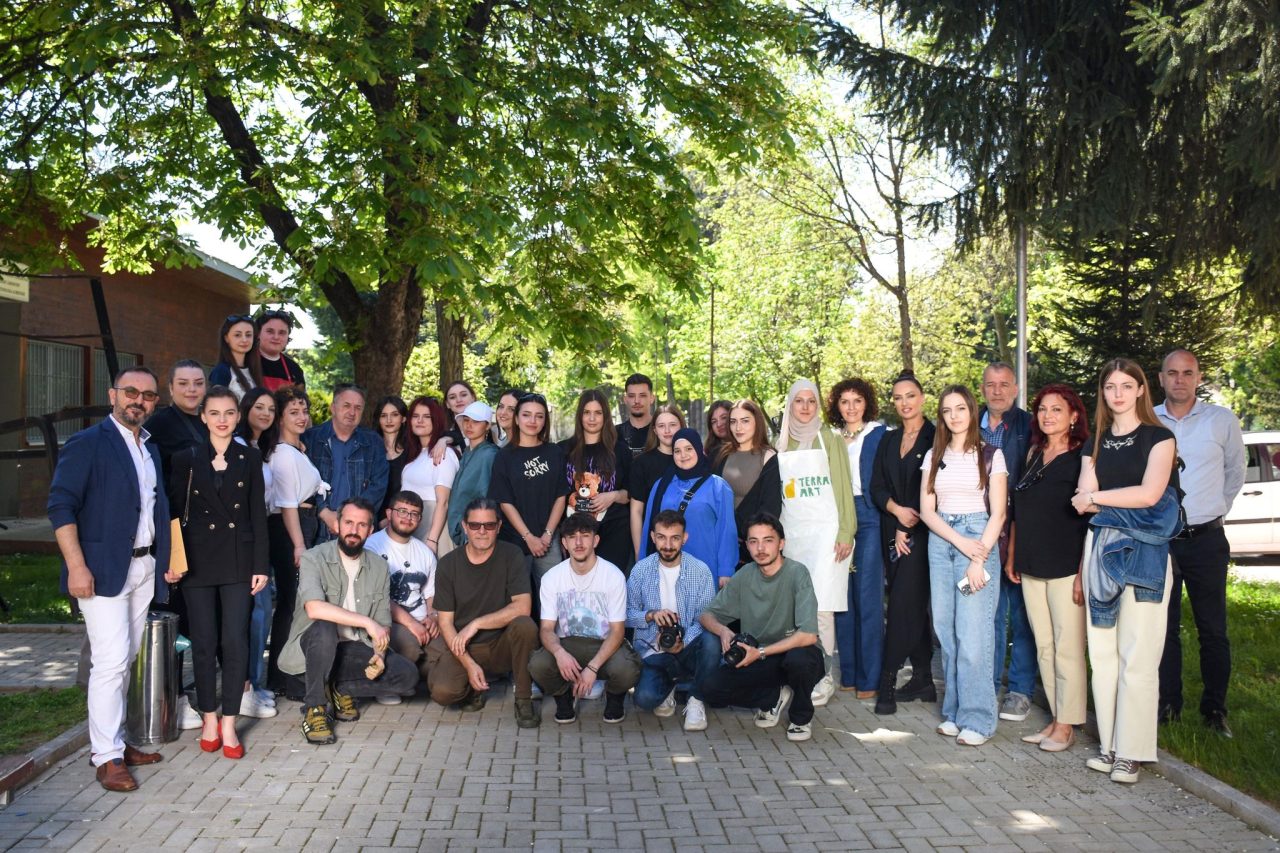At the Faculty of Law of the University of Tetova, the results from the project “Measuring perceptions of the level of corruption in public institutions in the region of Pollog” were presented today. This project was carried out in collaboration with the Vrije University of Amsterdam and with the Aurora alliance, a consortium of European universities with research purposes, where the University of Tetova is an associate partner. Those present at this conference were addressed by the dean of the Faculty of Law, Prof. Dr. Jusuf Zejneli and professors from the Vrije University of Amsterdam, Prosper S. Maguchu and Sabina Di Prima.
One of the coordinators, Prof. Dr. Drita Mamuti – Fazlija emphasized that this project was financed with a mini-grant from Aurora and was realized in several stages. “The implementation of the first training at the Vrije University of Amsterdam was carried out from June 6 – 9, 2022. Three representatives from the project participated in this training, and they had the opportunity to discuss together with the representatives of our project partner creation of the questionnaire on integrity, anti-corruption and methodology. The implementation of the second training at the Faculty of Law of UT was realized on September 14-15, 2022. This training was carried out by the professors of our Faculty and Mr. Maguçi that has presented online. 20 students of the Faculty of Law of the UT were trained, who later had to measure the perception of the level of corruption by conducting direct surveys with the citizens of the Pollog region”, said Prof. Dr. Mammoth Light.
During the implementation of this project, which lasted approximately 10 months, the students conducted a total of 400 surveys in the 9 municipalities of the Pollog region. The surveys were in three languages, in Albanian, Macedonian and English. Data processing and the final report of the project was carried out by professors, Prof. Dr. Drita Mamuti, Doc. Dr. Gjeraqina Leka, Doc. Dr. Njomza Osmani and project assistant Emine Dervishi.
The results that were presented showed certain levels of the presence of corruption, as well as different forms of its manifestation in public institutions.

